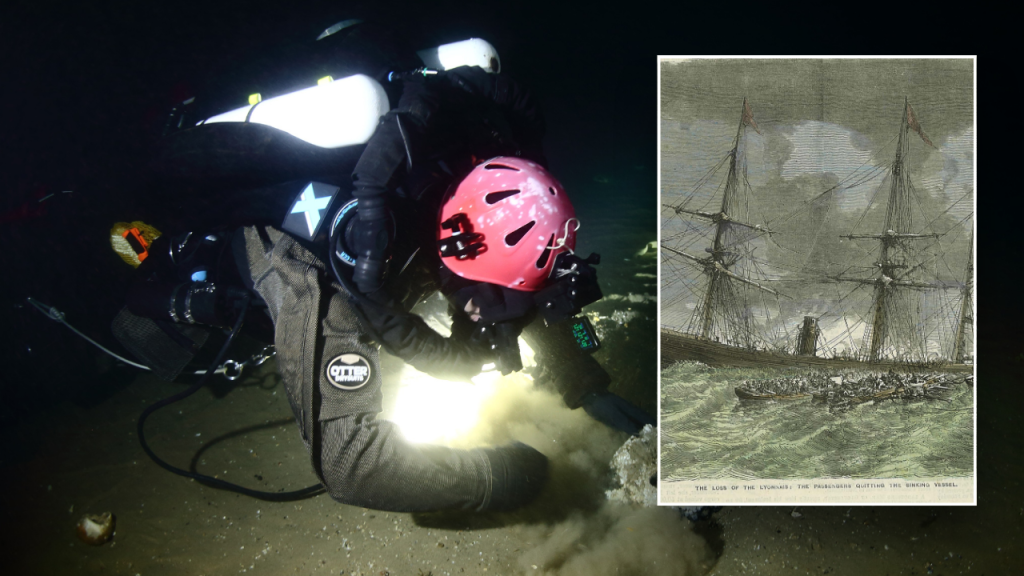A team of researchers recently announced the discovery of the steamship Le Lyonnais, which had not been seen in 168 years. The ship was found off the coast of southeastern Massachusetts by Atlantic Wreck Salvage (AWS), who had been searching for it for eight years. The vessel, built in 1855, sank on its first return voyage to France after colliding with another ship. Out of 132 passengers and crew, 114 people died, and the survivors were stranded in a lifeboat for a week. Jennifer Sellitti, from AWS, expressed a mix of relief and joy upon finding the ship, as she had been working to learn and tell the stories of those who sailed aboard Le Lyonnais.
Sellitti, who also works as a New Jersey public defender, was positive that the wreck still existed but had doubts about whether they would find it due to the challenging conditions of the North Atlantic. Storms, currents, shifting sands, and fishing gear can cause wrecks to deteriorate over time, making them difficult to locate. The forthcoming book by Sellitti, titled “The Adriatic Affair: A Maritime Hit-and-Run Off the Coast of Nantucket,” delves into the details of the shipwreck and is set to be released in February. The story of Le Lyonnais extends beyond just a shipwreck, as it represents a transitional period in maritime history where sailing vessels were transitioning to steam power.
Despite not surviving well, Sellitti is looking forward to fully documenting the wreckage of Le Lyonnais, a process that will likely take years. Shipwrecks are seen as remnants of bygone eras, frozen moments in time that provide a unique connection to history. Finding and documenting shipwrecks like Le Lyonnais helps to uncover stories of the past and sheds light on historical events that shaped maritime navigation and regulation. The discovery of the ship has brought closure to Sellitti and her team, allowing them to help those who perished in the tragic sinking of Le Lyonnais finally rest in peace.
Sellitti emphasized the challenges of locating shipwrecks in the treacherous waters of the North Atlantic, where wrecks can be buried by the ocean over time. The Nantucket Shoals, in particular, make it difficult to find shipwrecks due to the bottom geology that can mask them on sonar records. The maritime expert highlighted the importance of shipwrecks in connecting us to history in a tangible way that stories alone cannot achieve. The discovery of Le Lyonnais serves as a reminder of the risks and uncertainties faced by sailors in the 19th century as the shipping industry underwent significant technological advancements.
The story of Le Lyonnais is a poignant reminder of the dangers of sea travel and the lives lost in maritime accidents during the 19th century. The shipwreck represents a significant moment in maritime history when the industry was undergoing rapid technological changes. Sellitti’s dedication to uncovering the history of Le Lyonnais and sharing the stories of those who sailed aboard the ill-fated vessel reflects a deep respect for the past and a commitment to preserving maritime heritage. The discovery of the ship after 168 years highlights the enduring impact of shipwrecks as tangible connections to the past, bringing closure and new insights into historical events that have shaped the course of maritime navigation and regulation.


